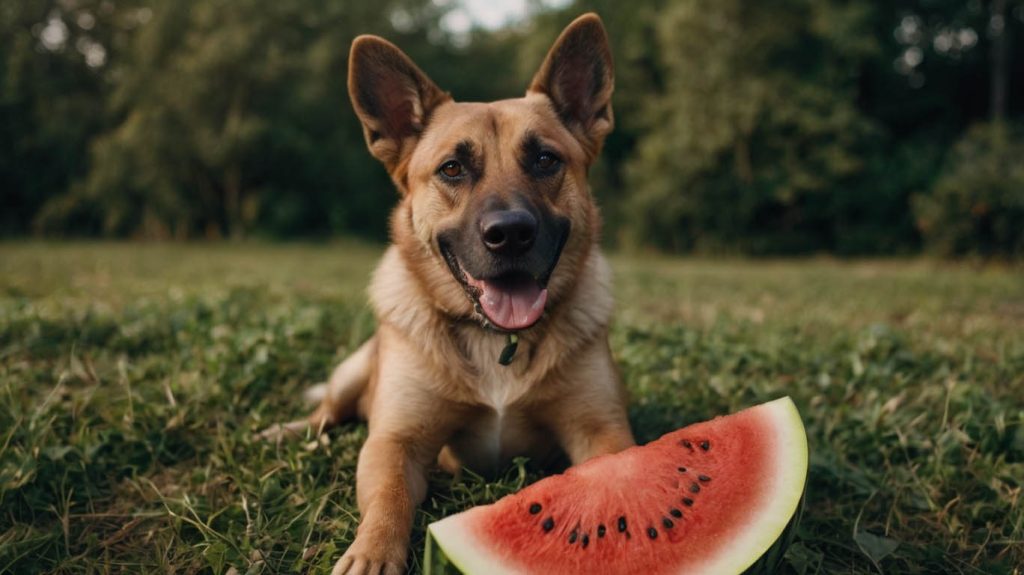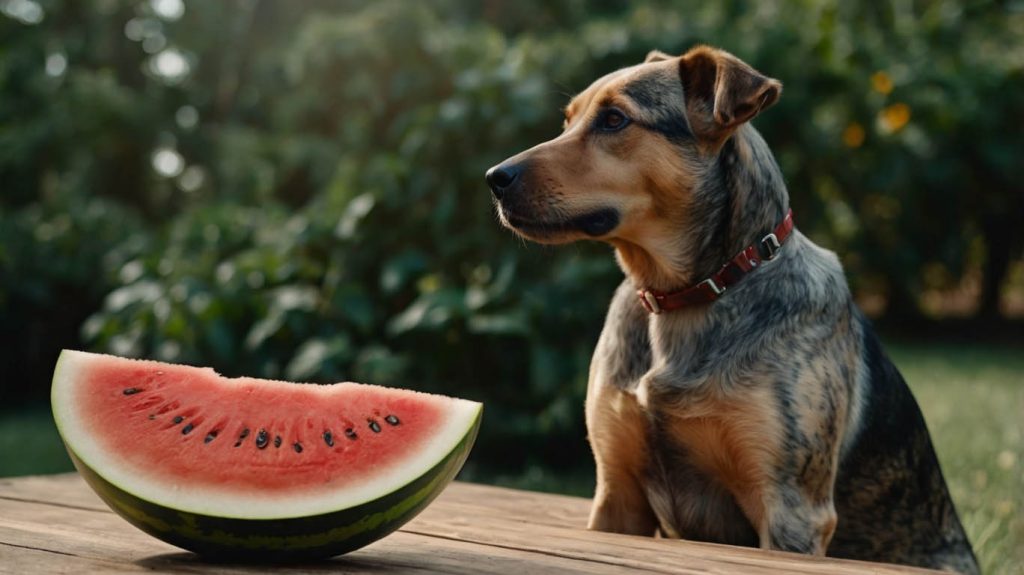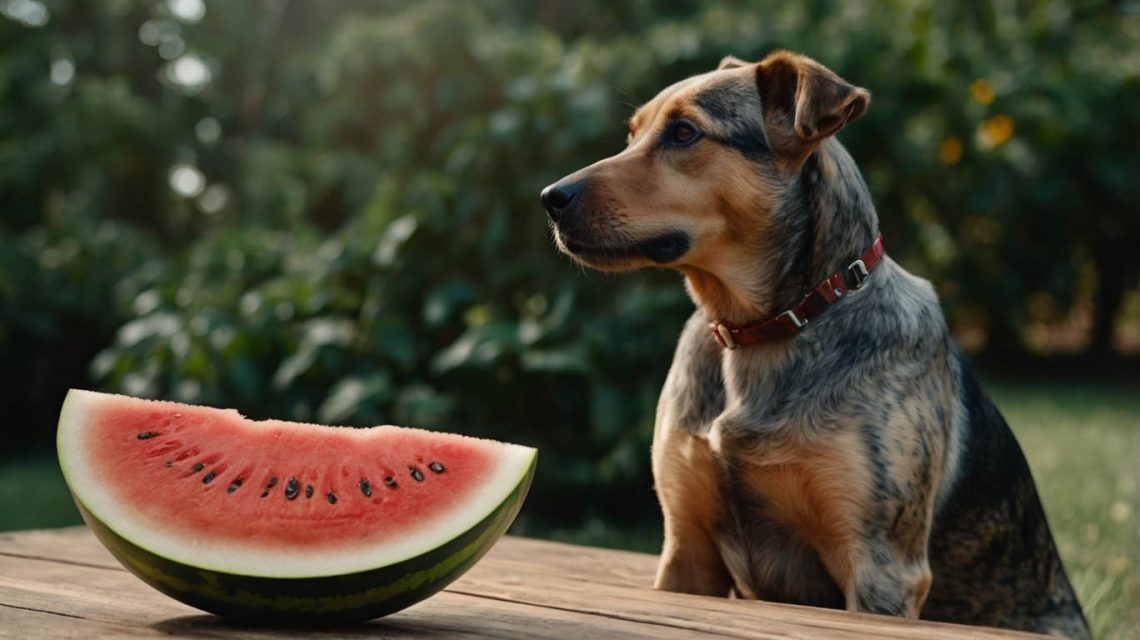Can Dogs Eat Watermelon Safely? A Comprehensive Guide for Pet Owners
The scene is a familiar one: it’s a sweltering summer day, the air is thick with humidity, and you’ve just cut into a crisp, juicy watermelon. As you take a bite, a pair of hopeful eyes meets yours, and a wet nose nudges your hand. Your dog is clearly intrigued, and you find yourself wondering, “Can dogs eat watermelon safely?” This question is incredibly important because while we love to share our lives and our food with our pets, their safety must always be the top priority. The fantastic news is that, yes, dogs can enjoy this refreshing fruit, but “safely” is the operative word.
This guide will tell you the complete story of sharing watermelon with your dog. We will begin by exploring the wonderful health benefits this fruit offers. Subsequently, we will navigate the critical safety hazards—the seeds and the rind—that you must avoid at all costs. Furthermore, this article will provide you with a step-by-step process for preparing and serving watermelon, ensuring a positive experience. Consequently, you will be able to confidently determine if can dogs eat watermelon safely is a question with a happy answer for your specific furry friend.
Why Asking “Can Dogs Eat Watermelon Safely?” Matters
Before we break down the pros and cons, it’s vital to understand why you should always question giving human food to your dog. A dog’s metabolism and digestive system are fundamentally different from our own. Foods that are healthy for us can be ineffective at best and dangerously toxic at worst for them. For example, grapes, onions, and chocolate are notorious for their toxicity to canines. By taking a moment to research if can dogs eat watermelon safely, you are being a vigilant and responsible pet owner, preventing potential gastrointestinal upset or even a medical emergency.

The Health Benefits When Dogs Eat Watermelon Safely
When prepared correctly, watermelon isn’t just a safe treat; it’s a genuinely healthy one. It offers a wealth of nutritional benefits without a high calorie count, making it an excellent choice for a special snack.
Optimizing Hydration When Dogs Eat Watermelon Safely
The most significant benefit of watermelon is its incredible water content. Composed of approximately 92% water, watermelon is a delicious and effective way to supplement your dog’s hydration, especially after a long walk, a game of fetch in the sun, or on particularly hot days. While fresh water should always be their main source of hydration, watermelon serves as a fantastic, moisture-rich treat.
A Source of Vitamins and Antioxidants
Beyond hydration, watermelon is packed with nutrients that support your dog’s overall health. For instance, it contains:
- Vitamin A: Essential for healthy vision, immune system function, and skin and coat condition.
- Vitamin C: A powerful antioxidant that helps reduce inflammation and combat the effects of aging.
- Vitamin B6: Plays a crucial role in glucose generation, red blood cell function, and nervous system health.
- Potassium: An important electrolyte that supports healthy heart and kidney function.
- Lycopene: The antioxidant responsible for the fruit’s red color, which helps protect against cell damage. The American Kennel Club (AKC) notes that such antioxidants are beneficial for canine health.

The Critical Dangers: How Dogs Can Eat Watermelon Unsafely
The safety of this treat hinges entirely on avoiding two specific parts of the fruit. This is where the answer to “can dogs eat watermelon safely” becomes conditional.
The Intestinal Blockage Risk from Watermelon Seeds
Watermelon seeds, particularly the hard, black ones, pose a serious risk. While swallowing a single seed is unlikely to harm a large dog, consuming multiple seeds can lead to an intestinal blockage. This is a life-threatening medical emergency where the seeds create a dam in the intestines, preventing food and fluid from passing through. The risk is significantly higher for small breeds. Symptoms of a blockage include vomiting, lethargy, and abdominal pain. To ensure your dog can eat watermelon safely, you must remove every single seed.
Why the Rind is a Choking and Digestive Hazard
The tough, fibrous green rind of the watermelon is another major hazard. First, it is extremely difficult for dogs to digest and can cause significant gastrointestinal distress, leading to vomiting or diarrhea. Second, and more dangerously, if a dog bites off a large piece of the rind, it can become a choking hazard or cause a serious intestinal blockage. Never let your dog chew on the rind as if it were a toy. This is a critical rule for anyone wanting to know can dogs eat watermelon safely.
The Step-by-Step Guide to Serving Watermelon Safely
Now that you understand the benefits and risks, here is the foolproof method for preparing this delicious treat.
Proper Preparation for Your Dog to Eat Watermelon Safely
- Choose Seedless: The easiest way to mitigate risk is to start with a seedless watermelon. While they may still have small, white seed casings, these are generally softer and less likely to cause issues, though removing them is still the safest bet.
- Wash the Exterior: Before cutting, thoroughly wash the outside of the watermelon to remove any dirt, bacteria, or pesticides that could contaminate the flesh.
- Slice and Deseed: Cut the watermelon into manageable slices. If it has black seeds, take the time to meticulously remove all of them.
- Remove the Rind: Carefully cut the pink flesh away from the entire green and white rind. Discard the rind immediately in a place your dog cannot access it.
- Cut into Cubes: Dice the pure, seedless flesh into bite-sized pieces appropriate for your dog’s size. For small dogs, cubes should be small enough to prevent choking.
Determining a Safe Serving Size
Treats should only constitute about 10% of your dog’s daily diet. Watermelon is low-calorie, but it contains natural sugar, so moderation is key.
- Small Dogs (under 25 lbs): A few small cubes (about a quarter cup).
- Medium Dogs (25-60 lbs): A small bowl (about a half cup).
- Large Dogs (over 60 lbs): A larger bowl (about one cup).
When first introducing watermelon, start with a tiny piece to see how your dog’s digestive system responds. This will truly confirm if your specific dog can eat watermelon safely.
Fun and Safe Watermelon Recipes for Your Dog
Looking to get creative? Try these simple, dog-friendly watermelon treats.
- Frozen Watermelon Pupsicles: Place cubes of seedless watermelon on a tray and freeze them. These make for a cooling, teething-friendly treat on hot days.
- Watermelon Smoothie: Blend seedless watermelon with a spoonful of plain, unsweetened yogurt or a splash of water for a hydrating smoothie you can pour over their kibble.
- Hydrating Ice Lick: Freeze a mixture of water and pureed watermelon in a large bowl or Bundt pan for a long-lasting ice block they can lick in the yard. For more treat ideas, see our guide on [Simple Dog Treat Recipes: Easy & Healthy].
The Final Verdict: Can Dogs Eat Watermelon Safely?
So, let’s return to the core question one last time: can dogs eat watermelon safely? The answer is an enthusiastic “yes,” with the critical conditions that you must remove all seeds and the entire rind. When served in moderation as a special treat, watermelon is a hydrating, nutritious, and delicious snack that you and your dog can enjoy together during the warm summer months.
Does your dog love watermelon? Share your experiences or ask any further questions in the comments section below! For a complete list of safe and unsafe foods, be sure to check out our comprehensive article, [The Ultimate Guide to Human Foods for Dogs].


